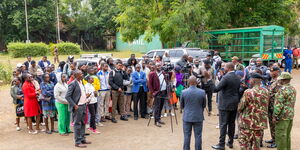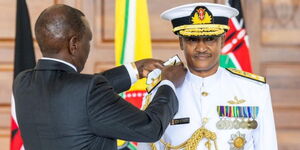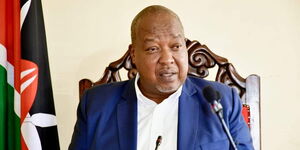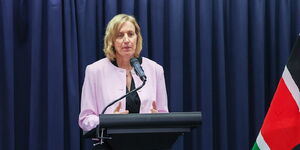Kenyans have expressed surprise after it emerged that the names, photos, and wedding dates of soon-to-be newlyweds are now being published online via the eCitizen platform.
The development, which first surfaced on social media, marks a shift from the usual procedure by the Registrar of Marriages, as such information was previously not accessible online.
Taking to various platforms, Kenyans voiced their concerns, with some questioning whether the move aligns with Data Protection Laws regarding the publication of personal data, as enshrined in the Constitution.
Others, albeit in a light-hearted manner, suggested the move could disrupt relationships by exposing individuals involved in secret affairs.
This is as most people have told stories of how they found out their partners were having affairs online. Others have revealed how they thought they were having prospective relationships, only to discover their ‘partners’ were in marriages or were about to marry/get married.
“The Registrar of Marriages now posts names, photos, and wedding dates of soon-to-be-weds online. If someone goes "missing in action," check here first. Viewer discretion advised,” an X user stated.
“You can now see who is getting married on eCitizen. You can also search for those who are already married (at a fee). Nowhere to hide anymore,” another X user commented.
Typically, couples intending to marry must file a Notice of Marriage with the Registrar of Marriages.
Traditionally, the Registrar would affix a copy of this notice to the outer door of their office, where it would remain visible for a specified period (typically 21 days). This allowed anyone with valid objections to come forward.
While physical posting is no longer the standard, the notice is now published digitally. This digital publication serves the same purpose of public notification and allows for objections. However, details such as pictures, dates, and places of marriage were not previously included in the notice.
To obtain a marriage licence in Kenya, the law requires a Kenyan national ID or passport for both parties, along with recent passport-sized photographs of each individual.
If either party is not Kenyan, they may be required to provide proof of residence or a visitor’s permit. An additional requirement is an affidavit confirming that each party is not currently married to anyone else.
The Marriage Act in Kenya recognises five marriages, including Civil, Christian, Hindu, Islamic, and Customary Marriage. Marriage in Kenya can be entered into by two Kenyans, a Kenyan and a foreign national and two foreign nationals wishing to get married in Kenya.












